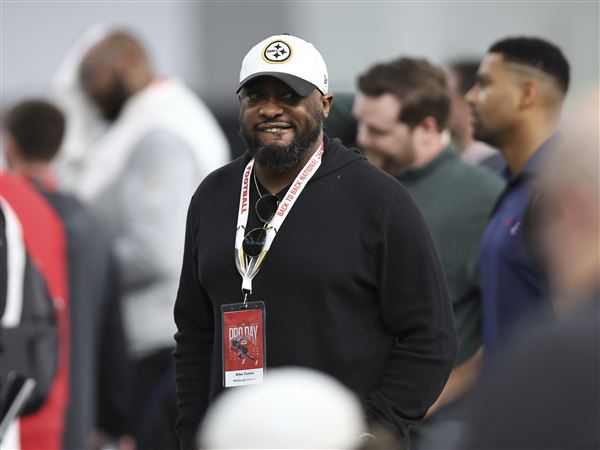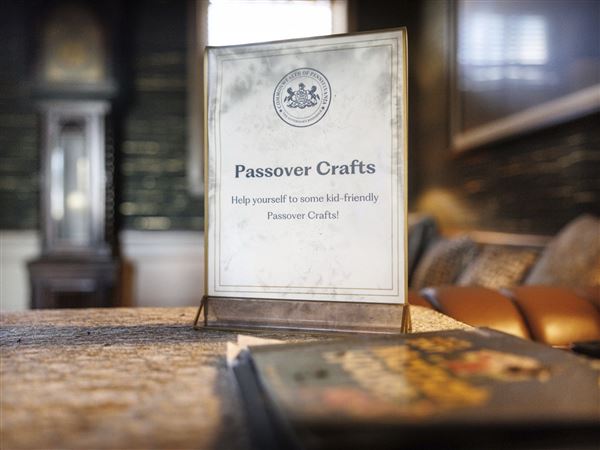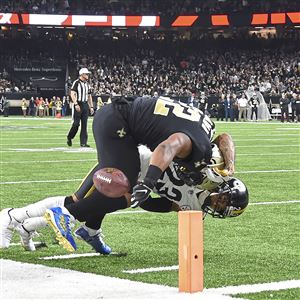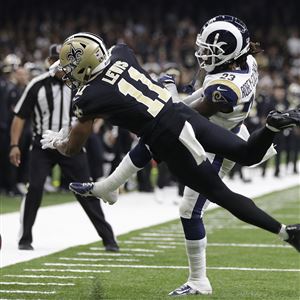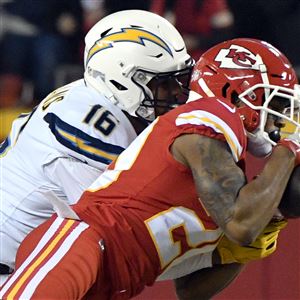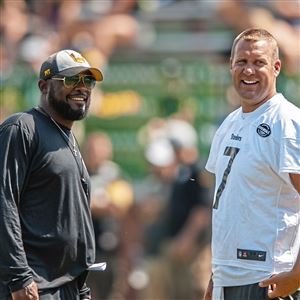PHOENIX – For the second year in a row, NFL owners adopted a rule change that could have drastically altered a Steelers season had the amendments already been in place.
The latest came when 31 of 32 teams voted on Tuesday to expand replay that will allow coaches to challenge a call or non-call of offensive or defensive pass interference in the first 28 minutes of each half.
Had that rule been in effect for the 2018 season, the Steelers might not have lost a Dec. 23 game in New Orleans that prevented them from winning the AFC North title and making the postseason.
A similar situation occurred a year earlier at the league meetings when owners adopted what was known as the Jesse James rule – eliminating the “didn’t survive the ground” portion of the catch rule. Had that rule been in effect for the 2017 season, the Steelers would have beaten the New England Patriots, had home-field advantage throughout the AFC playoffs and missed a first-round matchup with the Jacksonville Jaguars
The Steelers, who were against the concept of building more potential delays into the game, nonetheless voted for expanded replay that will be used on a one-year trial basis. The lone dissenter was the Cincinnati Bengals.
“I know we as coaches are very spirited in our discussions involving the game and particularly replay and the rules of the game,” said Steelers coach Mike Tomlin, a member of the league’s eight-man competition committee. “But I don’t view it as a divide.”
Owners agreed to adopt expanded replay once the competition committee voted unanimously to recommend the change.
The impetus for the rule change basically came down to one play – a badly missed pass interference penalty against Los Angeles Rams cornerback Nickell Robey-Coleman in the NFC championship game that likely cost the New Orleans Saints a trip to the Super Bowl.
But Tomlin liked to point to a particular play in the first quarter of a Week 15 game in New Orleans, when cornerback Joe Haden was called for interference in the end zone on a fourth-down pass to running back Alvin Kamara. Replay clearly showed Haden never even made contact with Kamara on the play.
However, because the penalty occurred in the end zone, the Saints were given the ball at the 1-yard line and scored a touchdown on the next play to take a 7-3 lead.
Under the new rule, Tomlin could have used one of his two challenges to have the penalty reviewed by replay. He thinks the call would have been overturned and the Steelers would have had possession at their own 34, leading 3-0.
Another pass-interference penalty – this one not as clear-cut but still very highly debatable – occurred with 1:56 remaining in the fourth quarter when Haden appeared to break up a fourth-down pass to receiver Michael Thomas that would have ended the game. Haden and the Steelers bench were incredulous at the call.
Because the play occurred inside the final two minutes, it would have been subject to an automatic booth review if the new rule were in place. And maybe it would have been overturned, ensuring a 28-24 victory and a trip to the playoffs.
“I think that is the question – how to appropriately advance in this area without unfortunate, unforeseen consequences,” Tomlin said. “So there’s a crawl-before-you-walk mentality, I think, from the committee perspective, and I think it’s reflected in the [rule].”
Initially, league owners were resistant to allow the league’s officiating department in New York to review an interference penalty that had not been called by the officials. They were worried the proposal would not receive the necessary 24 votes to pass.
But, under that proposed setup, the rule would not have changed what happened to the Saints in the NFC title game. It would have made little sense to change the rule if it didn’t address the non-call that created all this furor.
So, with time running out on Tuesday at the Arizona Biltmore Resort & Spa, the owners reached what Steelers owner/president Art Rooney II called a “compromise” to allow non-calls to also be reviewed in New York.
The new rule does not alter the basic concept of the replay system. Each team still gets two challenges per game and is awarded a third if it gets both of the first two right.
A team cannot challenge interference in the final two minutes of each half, partly to avoid coaches throwing the red flag on last-second desperation passes in the end zone where any number of players are jostling for position. Interference calls, or non-calls, in the final two minutes will be automatically reviewed in the booth, much like a scoring play.
When it was all over, NFL Commissioner Roger Goodell said, “Replay is to get it right. People compromised on long-held views because they want to get the system right. They want to get the plays right.”
It’s just too late for the Steelers. Again.
First Published: March 27, 2019, 4:34 p.m.


